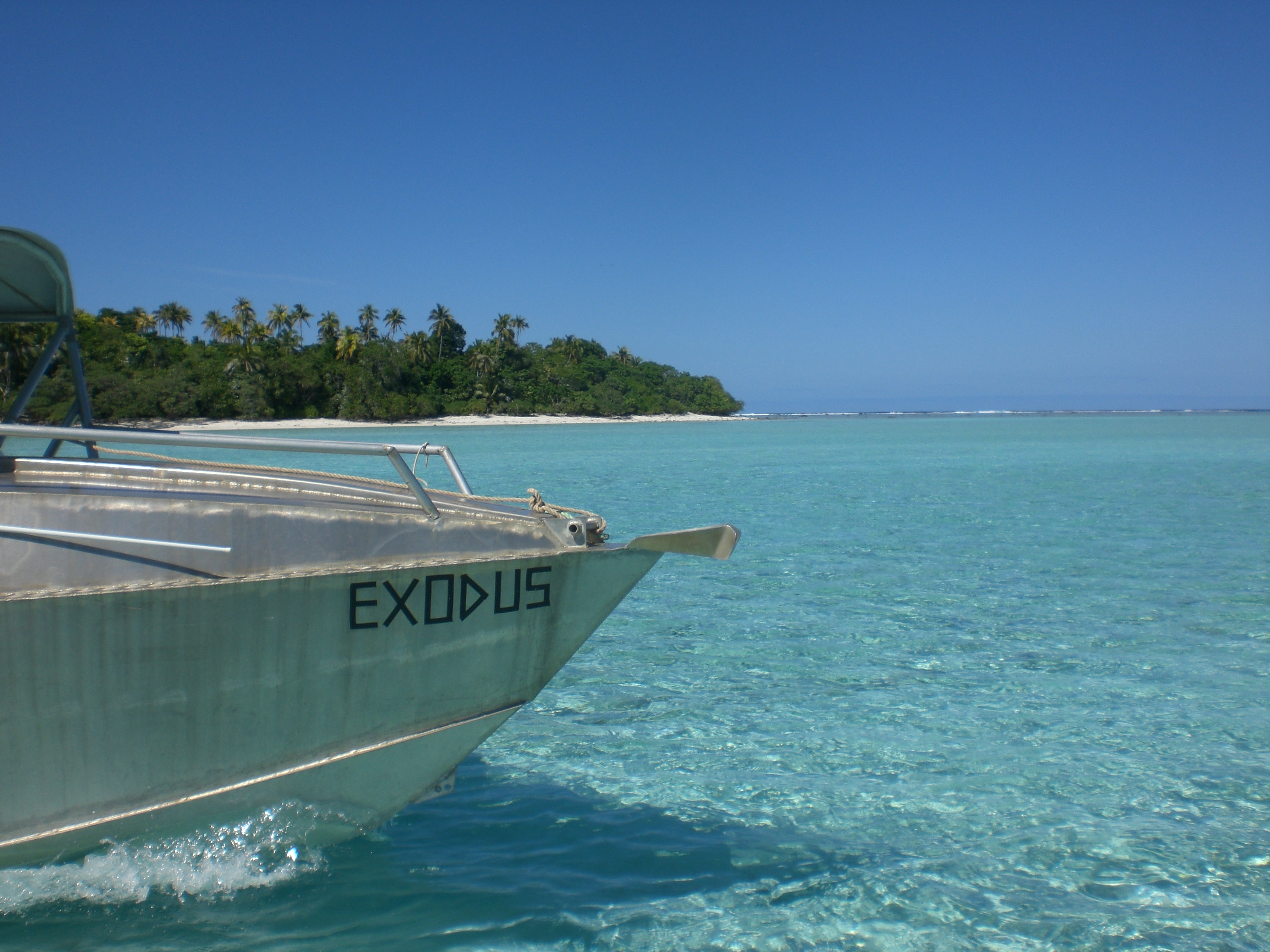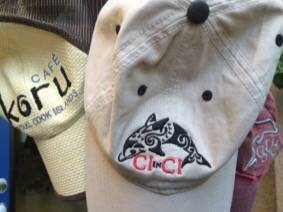




I experienced a vast amount of things going to the Cook Islands; it is almost hard to even put into words. I was able to go snorkeling several times, which I had only done once before this trip. I was in awe seeing all of the coral, beautiful organisms, and clear waters; I am excited and proud to have experienced that kind of snorkeling. Many people from our group hiked up to the highest point on Aitutaki, Maunga Pu Summit, and the views up there were beautiful. It was surreal to be able to see all the surrounding motus and light blue water in the lagoon. In addition, I ate foods I have never tried before; I am not a very adventurous eater, so I am proud of myself! We visited the Cook Islands Marine Park center, too. We were able to speak with Kevin Iro about the marine park, the challenges the Cook Islands face in regards to the park, and his hopes for the project. Honestly, I was pretty star struck because some of us watched a documentary at CSUCI on their marine park, and Kevin was in it! In addition, I was able to experience a completely different culture. This trip allowed me to familiarize myself with the daily lives of a society so removed from my own urbanized life. For instance, their daily struggles and life worries are just as important, yet living on an island does not make those difficulties any less valid than my own. Also, I made new friendships with the people in our “CI in CI” group, as well as with some of the locals from the Cook Islands. The people out there are so kind, and I am very grateful to have experienced such a friendly and welcoming community.
The biggest things I learned on this trip were the many aspects of research. I am fairly new to the concept of collecting, recording, and analyzing data. I did research more days than not, so it was important that I caught on performing field work quickly. I was in the lagoon group on this trip, so I learned the correct procedure when surveying the lagoon with the assistant of transect tape. Also, I quickly acquired the skill of efficiently recording data while performing these surveys. Neither writing big nor writing many full words is preferred because both take up too much room on the waterproof paper; every bit of space on the slate is valuable! In addition, I learned how to input data into Excel in a way that can be generated into a graph, if necessary. Doing this, we are able to analyze the data to find trends in the research we did. I am really glad that I was able to obtain these skills because this is the same kind of work that I will hopefully be doing once I graduate and to have these abilities will be vital when doing field work. On a more personal note, I learned a lot about myself on this trip. For instance, I learned that I am not as anxious on planes as I thought I would be, my tolerance for working in groups, and that I sort of (and by sort of, I mean really) freak out when I am in water. Mental note: a spring wetsuit is not enough for me to feel comfortable in the water. The whole trip was a learning experience, and I think I gained a lot from it personally, academically, and socially.
As I mentioned in one of my first posts, I am quite naïve when it comes to other cultures and general act of traveling. I would not say I experienced “culture shock” when staying in the Cook Islands, yet I loved seeing a culture that strayed far from the urbanized, hustling life I know. Being able to experience a society so completely different than my own, I am humbled. I think we often forget about other regions of the world that do not have similar living expectations as ours. With that, we lose the connection to the fact that each of our individual actions affects those that are out of site and out of mind. Now, I am much more aware of the repercussions of my personal choices, such as using plastic-based products, because I witnessed the depressing reality of where it ends up: on the shores of a small island nation far from the origins of these plastics. What I took away from this experience is that the world’s problems are much bigger than my own; however, that is not to say that my small, single efforts are not worth putting forward in attempts to ease the severity of the problem. With that, I hope we all realize that the world’s problems are each of our problems and our responsibility to help.
Thank you again to all of those who made this trip possible. I think it was extremely valuable, and I hope CSUCI and the others who joined us get the opportunity to continue this research on the Cook Islands.





















